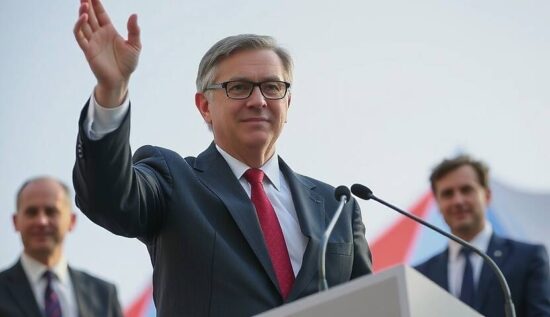Sebastian Kurz’s Political Comeback in the Offing?
In the event of snap elections, former Austrian Chancellor Sebastian Kurz, 38, could potentially return as a candidate for the top office, insiders claim. According to ÖVP circles, current Chancellor Karl Nehammer would not stand for election, while Kurz is seen as a promising candidate. Nehammer is reportedly viewed as having failed.
Sebastian Kurz, born on August 27, 1986, in Vienna, rose to prominence in a few years, becoming one of the most influential figures in Austrian politics. His career, marked by a rapid ascent, ended dramatically with his resignation as Chancellor in 2021.
What makes Kurz a politician? How did someone once hailed as a “wunderkind” fall so quickly?
And what are the chances of a comeback?
Kurz’s swift rise began in his youth, when he drew attention as the leader of the Young People’s Party (JVP). He positioned himself as a representative of a modern, forward-thinking politics, with an elegant yet resolute demeanor and a keen understanding of media and communication. The decisive step came in 2013, when he became the State Secretary for Integration at the age of 27, allowing him to establish his political line, particularly in migration policy.
However, the real breakthrough came in 2017, when Kurz took the post of Foreign Minister. His asylum policy, marked by a strong emphasis on rejecting immigration, garnered national and international attention.
“Austria First” was his creed, not only in his country but also on the European stage, showcasing his ability to modernize the People’s Party and appeal to a broader electorate, comprising not only traditional conservative voters but also many younger ones.
The climax of his career came in 2017, when, after early elections, Kurz led the ÖVP to a surprising victory and was sworn in as the youngest Chancellor in Austrian history. With a coalition with the Freedom Party of Austria (FPÖ), he managed to change the country’s political landscape, marking the beginning of an era characterized by a nationalist rhetoric.
Kurz focused on a strict migration policy, which sparked international attention, but also drew significant criticism. He also launched education reforms, particularly the introduction of all-day schools and the modernization of the education system. Economically, he achieved success during his tenure, with stable economic growth and a decline in unemployment.
However, the partnership with the FPÖ was not meant to last. Soon, the first cracks began to appear. The “Ibiza scandal” in which an FPÖ politician was secretly filmed discussing potential corruption, led to the collapse of the coalition and snap elections in 2019. The scandal, in which FPÖ Vice-Chancellor Heinz-Christian Strache and other FPÖ politicians were caught on camera discussing potential corruption deals, left deep scars in the FPÖ and put Kurz in a difficult position.
Although Kurz remained the favorite, it became increasingly clear that his political career was overshadowed by the corruption allegations. In the fall of 2021, the investigations against him escalated, with charges of bribery and media influence. Kurz eventually resigned as Chancellor, remaining ÖVP chairman for a while. The corruption allegations, linked to the “Ibiza affair” and political deals during his tenure, heavily tarnished his political legacy.
His resignation was a dramatic moment. Kurz had transformed from a national and international hope to a politician whose reputation was overshadowed by investigations and public accusations. And although he stepped back from the political stage, the question remains: what will his future hold – particularly, whether he will return to the political forefront?
The possibility of a comeback is often discussed, especially in ÖVP circles. Kurz has since taken a less public role, but remains active as an investor and advisor in international business. While some of his supporters still hope he will return, his political fate remains uncertain.
Corruption allegations hanging over him are seen by many as a significant obstacle to a comeback. However, in the world of Austrian politics, where power and influence often experience a rapid change, Kurz’s political comeback could still become a reality.





